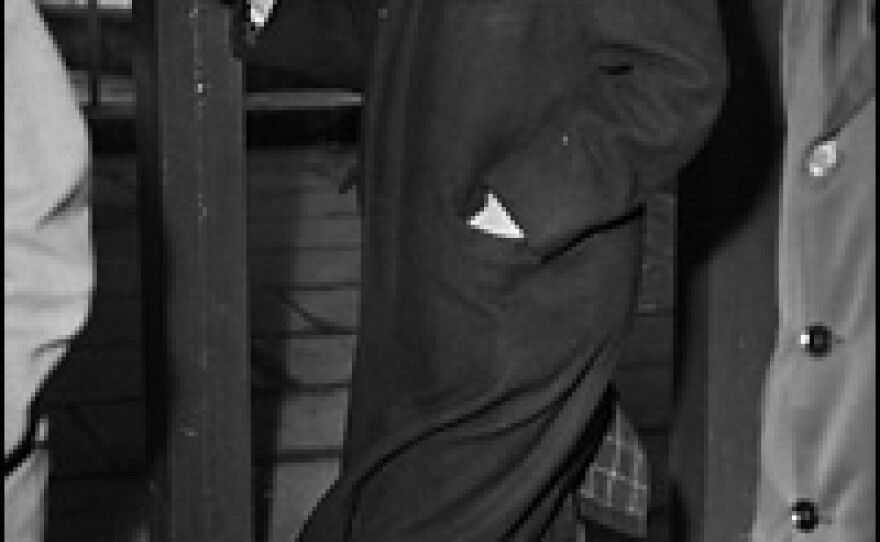
American historian Arthur M. Schlesinger Jr., famous for his Pulitzer Prize-winning chronicles of the Kennedy administration, died Wednesday night of a heart attack. He was 89.
Schlesinger also worked for the Kennedy and Lyndon Johnson administrations, and served in Sen. Robert Kennedy's presidential campaign, which was cut short by an assassin's bullet.
In the days after President John F. Kennedy's funeral, Jacqueline Kennedy once famously said she didn't want a historian to write her husband's legacy. She considered historians "bitter, old men."
Walter Isaacson, the former editor in chief of Time magazine, and Schlesinger's friend, says Mrs. Kennedy needn't have worried about this historian.
"Arthur was definitely not a bitter, old man. He was a man of great joy, of great sparkle and wit," Isaacson said. "And I think he disproved that to Mrs. Kennedy, because when she was a widow, he used to squire her around in Washington and New York."
Schlesinger came by his discipline honestly: His father, Arthur Schlesinger Sr., had been a well-respected Harvard history professor.
Speaking with NPR's Daniel Schorr in 2000, Schlesinger talked about the responsibility inherent in writing history.
"Historians, like everybody else, are prisoners of their own experience," Schlesinger said. "And they often read back into the past the preoccupations of the present."
Schlesinger went on to say that there are movements and groups of people that, in hindsight, were always present, just waiting to be noticed: "Now we look back and see the roles of women, the role of minorities, and it gives a different cast to American history."
Schlesinger was born in Columbus, Ohio, and grew up in the Midwest until his father moved the family to Cambridge, Mass., to accept a teaching position at Harvard. Arthur Jr. graduated there summa cum laude.
When he was just 27 years old, Schlesinger published his first history book, The Age of Jackson, a reassessment of Andrew Jackson's presidency. It was awarded a Pulitzer Prize.
Even as he continued to write and teach history, Schlesinger was active in the Democratic Party. After watching America reject his candidate, Adlai Stevenson, for what some considered overly intellectual musings, he backed a fellow Harvard alumnus from Massachusetts: Sen. John F. Kennedy.
After Kennedy's 1960 victory, Schlesinger was appointed a special assistant to the new president.
"John Kennedy brings him inside the White House, and people ask whether he's going to write the history," Isaacson said. "And Kennedy says, I'm going to write my history, and Arthur is going to write his — and it's better to have him on the inside."
Schlesinger remained "inside" for the entire administration. A Thousand Days was a best-seller; it also received a Pulitzer, although some critics thought Schlesinger was too close to his material to be completely objective.
Schleringer worked in the Johnson administration very briefly, then went on to work for Robert Kennedy's 1968 campaign, which ended with the senator's assassination.
Schlesinger left electoral politics, but he continued to write and assess other U.S. presidents — this time, from the outside. In his later years, he warned against the dangers of cultural separatism and the folly of the war in Iraq.
But, says Isaacson, he never lost his enthusiasm for life: "He was a great believer in the joy of social life. He loved the movies, he loved parties, he loved great dinners — and he really loved a well-made martini."
Schlesinger died in New York Wednesday night while dining out with his family.
Copyright 2022 NPR. To see more, visit https://www.npr.org. 9(MDAzMjM2NDYzMDEyMzc1Njk5NjAxNzY3OQ001))







